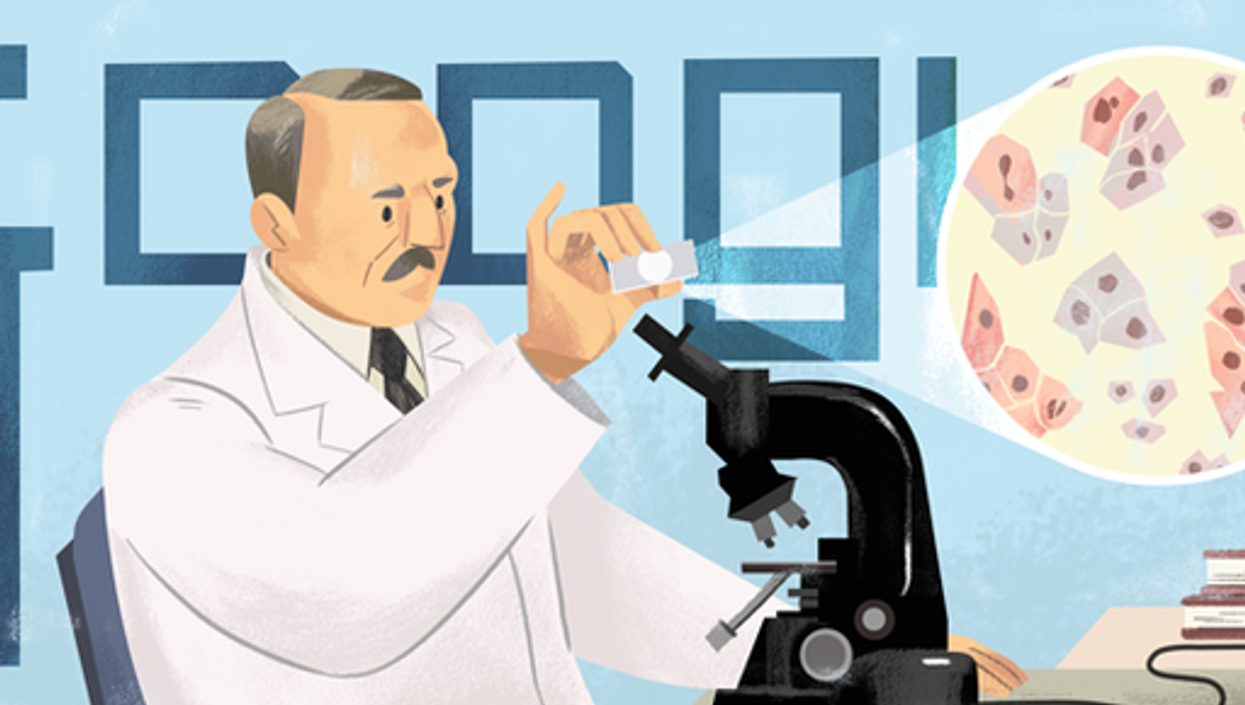Science & Tech
Ryan Butcher
May 13, 2019

Related video: NHS releases first national cervical cancer smear test advert
Greek medical pioneer Georgios Papanikolaou is being celebrated with a Google Doodle on what would have been his 136th birthday.
Born in the costal town of Kymi on this day in 1883, Papanikolaou is regarded as one of the most brilliant scientific minds of the 20th century and is the inventor of the smear test, which is used to detect early signs of cervical and uterine cancer.
He studied at the University of Athens, where he received his medical degree in 1904, and the University of Munch, where he received his PhD six years later. After a stint working for the Oceanographic Institute of Monaco, he immigrated to the US in 1913 and - after a string of low-paid jobs - eventually found hismelf working in the department of pathology at New York Hospital at the department of anatomy at the Cornell Medical College, Cornell University.
His groundbreaking revelation that uterine cancer could be diagnosed by means of a vaginal smear was first reported in 1928, but the importance of his work was not realised until more than a decade later when, alongside Dr Herbert Frederick Traut, he published 'Diagnosis of UIterine Cancer by Vaginal Smear' - catchy title - in 1943.
Through his book, he became known for his invention of the Papanicolaou test, more commonly known as the Pap smear or Pap test. It is still used to this day all over the world for the detection and prevention of cervical cancer.
While a smear test is important and necessary for any cisgender woman, transgender man with a cervix or other eligible gender non-conforming people, smear test attendance is currently at its lowest in 19 years in England, with a ten-year low in Scotland and Wales, reports The Independent.
In 1961, Papanikolaou moved to Florida to create the Papanicolaou Cancer Research Insititute at the University of Miami, but he died of a heart attack in 1962, aged 78, before the centre opened its doors.
Prior to todays Google Doodle the scientist he has also been honoured with a 13-cent stamp by the US Postal Service in 1978; between 1995 and 2001 his portrait appeared on the Greek 10,000-drachma bank note; and in 2009 he was named the second greatest Greek of all time - behind only Alexander the Great - in a poll by Skai TV.
More: Cancer Research UK responds to claims that its new campaign is 'anti-woman'
More: This woman shared the heart attack symptoms all women need to know
Top 100
The Conversation (0)













